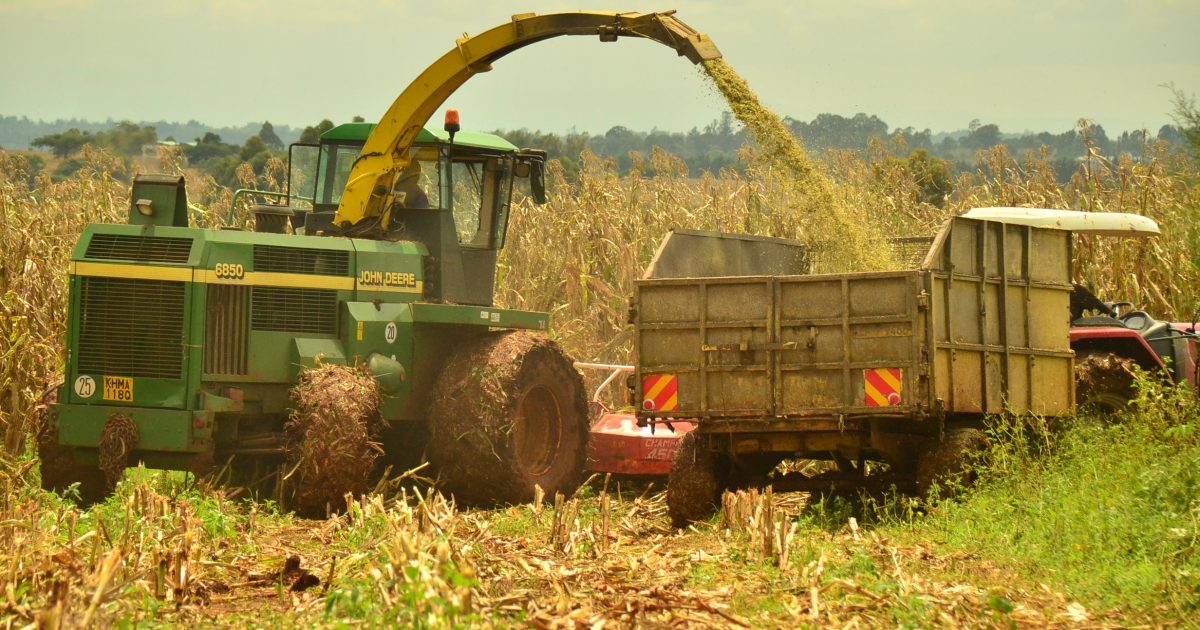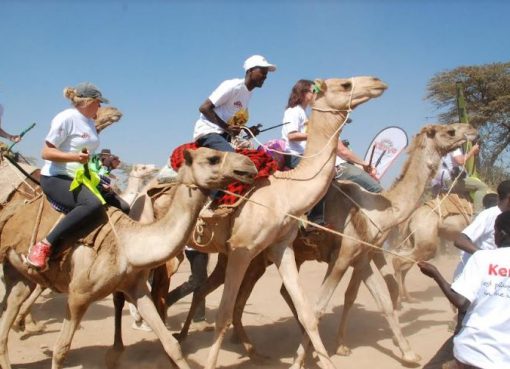Dairy farming is turning out to be a profitable venture for both small and large-scale farmers in Trans Nzoia County and other counties in the country.
As more farmers venture into the practice, the need to have quality feeds is also pushing many farmers to take to silage as a feed for their animals for more milk production.
For many years, Trans Nzoia has been known as a basket for maize where farmers grow maize for commercial purposes.
The county produces almost 4 million bags yearly with most of the cereals being sold to other counties and sometimes for export. The trend is today slowly changing with many farmers taking to maize growing as a feed for animals.
The advantage of such ventures is the vast land in the region where some residents own as much as 3,000 acres of land. The need for silage making has been necessitated by the urge by Kenyans to venture into dairy farming. Indeed, the key to unlocking the potential of dairy farming in the country lies with the improvement of feeds and low costs of milk production.
In Trans Nzoia, farmers have slowly been moving towards silage making as feeds for their animals. Some use chaff cutters while others use tractors to process silage. However, quality is guaranteed only if the process is done professionally.
Technology has made it easier for quality silage and individuals and companies have ventured into the practice to boost dairy farming besides making profits. One such company is Yellow Grove Farm Limited. The group’s founder and director Yebeltal Getachew while speaking to KNA at one of the leased farms in Trans Nzoia said that the quality of silage depends on the process right from planting to harvesting and even packaging.
Yellow Grove Farm Limited has leased over 400 hundred acres of land in Trans Nzoia for silage making. Getachew explains that right from planting, the right seed is picked that guarantees quality. To the company, PANA maize seed is good.
“We look at many things in the seed; the first is production levels and the the strength of the seed in beating bad weather conditions like heavy winds,” he said.
According to the founder, all good practices are applied right from the planting stage to also guarantee high yields which gives the silage quality. “We prepare our farms well and pick the right hybrid seed for the corn maize,” he added.
During an interview with KNA, the farm’s production manager Andrew Khaemba said that harvesting the maize corn at the right time gives silage quality and all the nutrients needed by animals.
“The harvesting time is critical as it influences the overall quality of the product and on the whole, the moisture content affects silage fermentation and preservation,” he said.
According to Khaemba, corn silage preserved at between 60 to 70per cent moisture generally provides good silage fermentation and animal performance. He said that kernel milk stage development is key to determining when to harvest.
Groove Company has invested heavily in machines that harvests and also bales the silage to further achieve quality. On average, the corn crash machine they have has a capacity of harvesting up to 40 acres in a day depending on prevailing weather conditions and the land scape. Averagely, they harvest between 20 to 30 acres per day during continued rains.
“Our silage undergoes normal fermentation process,” he said adding that they also use a special film to wrap the compacted silage that gives the product life of two years under the sun or rain. The machine cuts and deposits the crashed maize onto a lorry for formation.
The high compression silage bailing equipment that Yellow Groove has makes packaging easier for preservation and transportation. The Company has a machine that can bale up to 10 tonnes a day. Though the machines are only used by the company, farmers are able to access the silage as low as Sh10 per kilogram.
The packaging has also made it easier for transporting the feeds to long distances without compromising the quality of the feeds.
According to the founder of the company, the machine scoops silage, packs it into huge rolls, wraps the roll using whitish nylon paper and finally rolls it to the ground. The silage is wrapped in quality material to guarantee freshness.
The Yellow Grove Company has planted over 400 acres of maize for silage in Trans Nzoia county. He said that at least 80 per cent of dairy farming in the country is dominated by small scale farmers and thus the need to venture into the business.
Getachew says they are targeting small scale farmers in the country to improve their milk production. He pointed out that small scale farmers also lacked the ability to produce consistent volume of fodder largely due to space constraint.
“The small scale farmer is having challenges in milk production because of insufficient land to make silage and lack of resources,” he told KNA during his visit to the Saboti farm that has almost 200 acres of maize for silage.
Getachew added that most farmers relied on the traditional method of chopping, wrapping and burying the fodder underground which compromises the quality of silage.
He said that Yellow grove has ventured in quality production of maize silage which minimizes biological degradation and conserves digestible nutrients.
His production manager told KNA that production of quality maize silage helps the dairy cow to preserve their body condition and maximize their milk yields. Though they sell to every farmer, their main market is in Central part of Kenya and mostly, the sell to milk co-operatives societies who according to Khaemba have placed orders for supply.
“We also guarantee them quality silage as the planting up to the harvesting process is well monitored to give the best to farmers for increased yields which translates to more milk and therefore higher profit margins,” he said.
The production manager told KNA at Saboti farm in Trans Nzoia that silage baling machine has enhanced how silage is packaged and stored while preserving its highly nutritious status.
“In dairy farming, forage is the most essential feed component, providing high quality silage at cheaper prices,” he said adding that silage is key to unlocking the huge potential and enhancing the competitiveness of the dairy industry in Kenya and beyond.
Khaemba said that this is happening with improvement of feed and forage systems that they have as a company.
And with a cost of Sh10 per kilo of silage, the company strives to make profits and also boost milk production both in Trans Nzoia and beyond out of the 5,000 tonnes they are expecting from their production.
The production manager says that constant supply of silage to individual farmers and societies is assured throughout the year as they have other farms in different parts of the country. He however said that currently, as they harvest, they are facing harsh rainy weather condition which is delaying works at harvesting and also baling.
“You see when the rains are on, we stop the process and this really affects our timeliness,” he told KNA. The company also capacity builds small scale farmers on general good management practices in dairy.
By Pauline Ikanda




